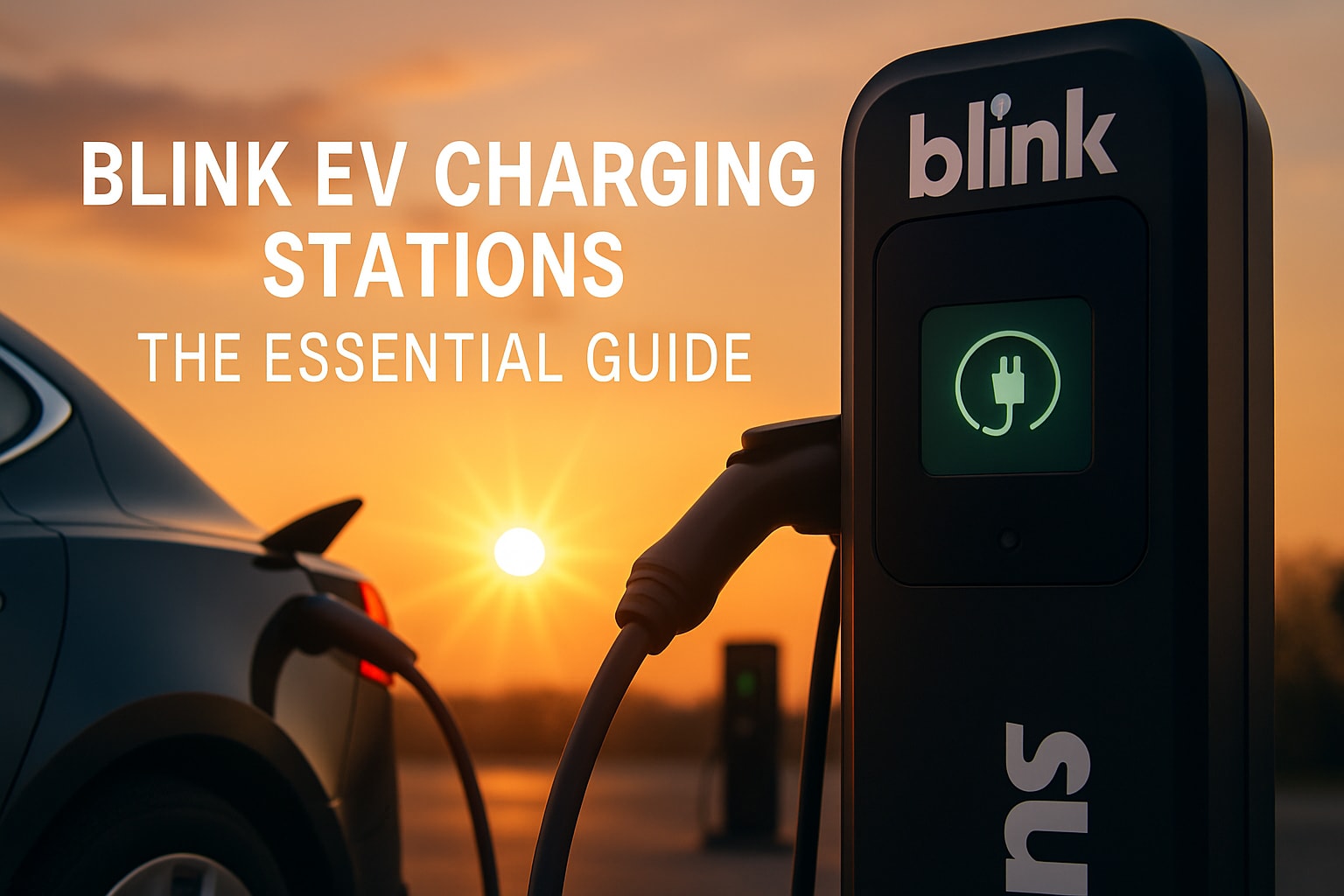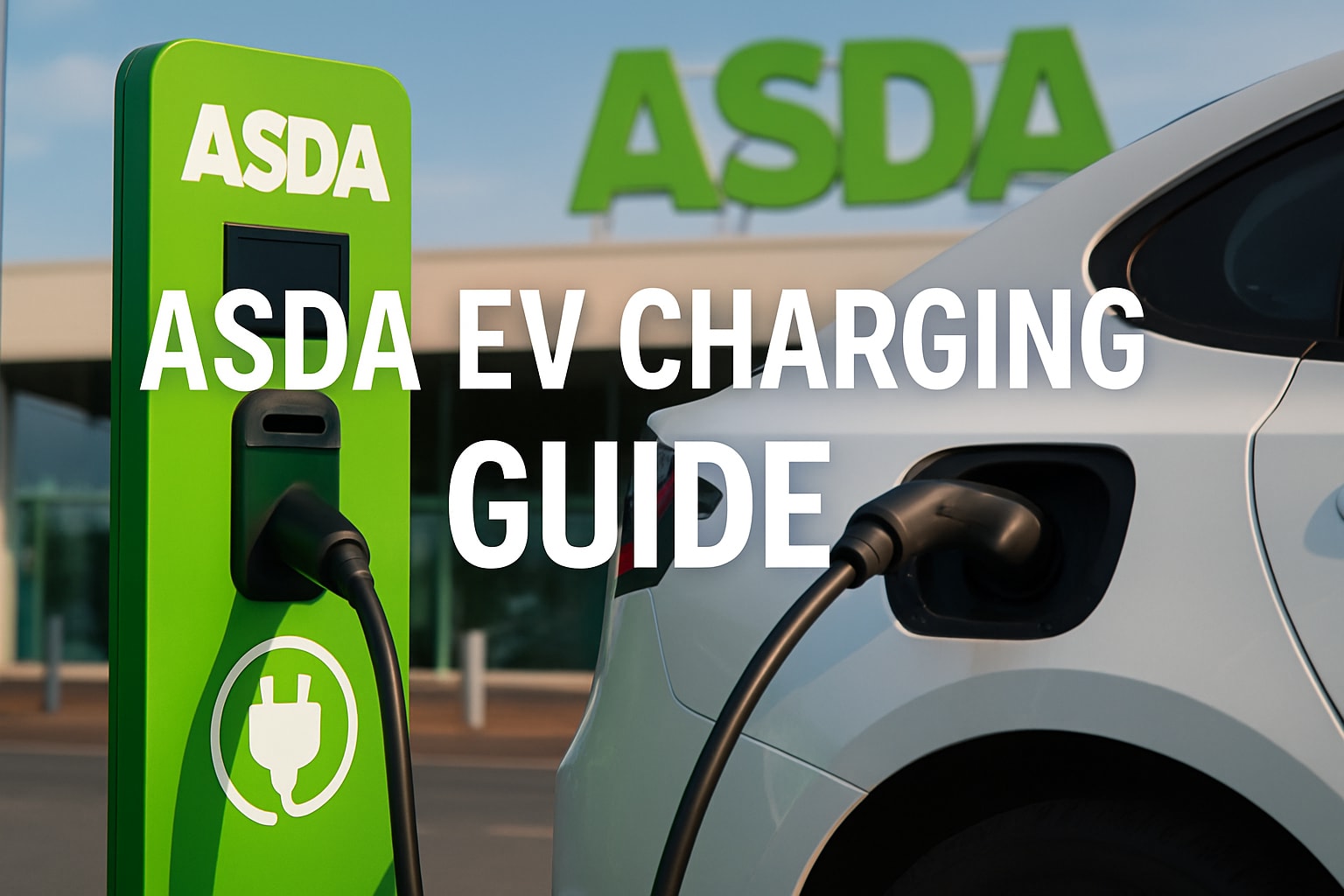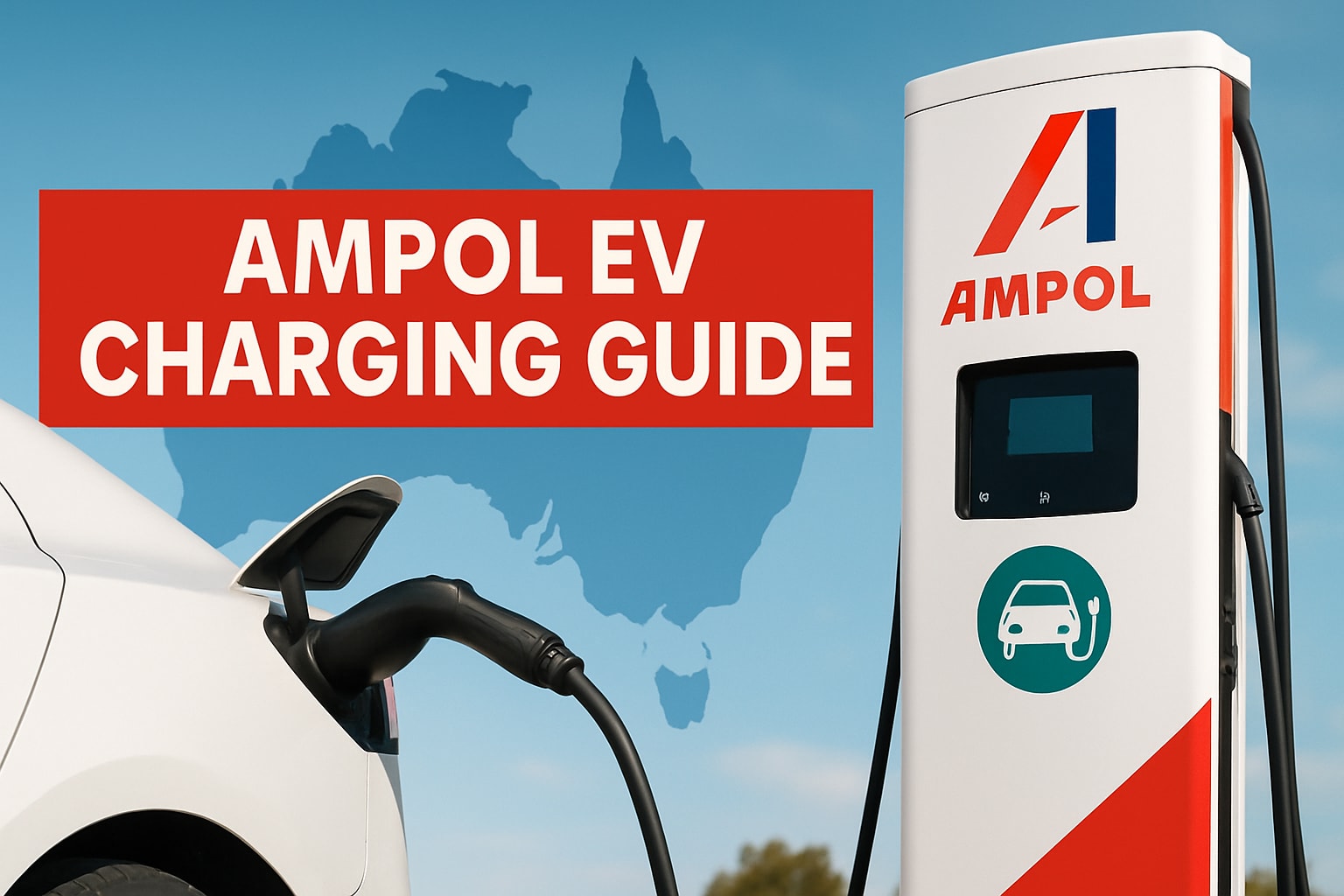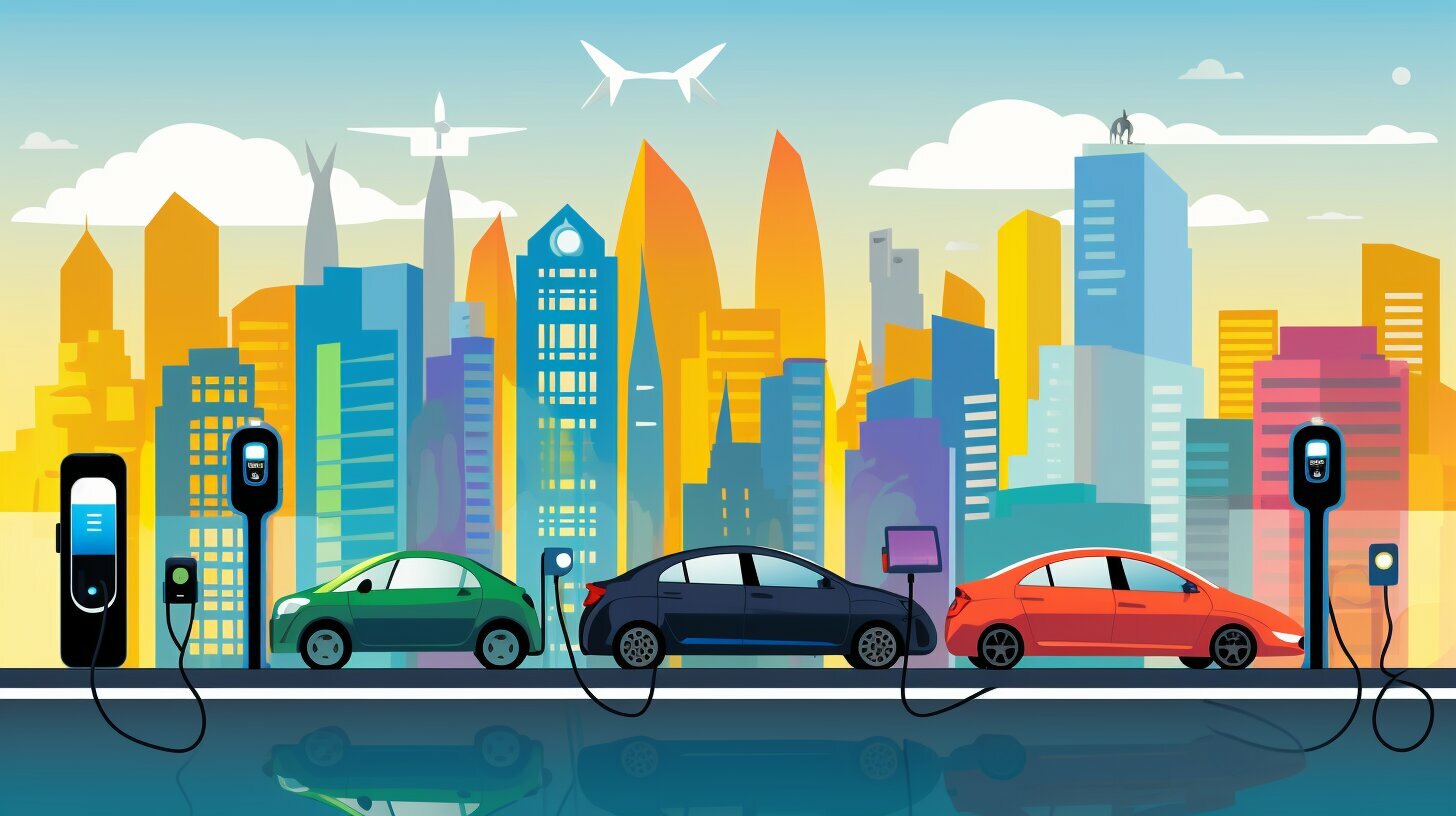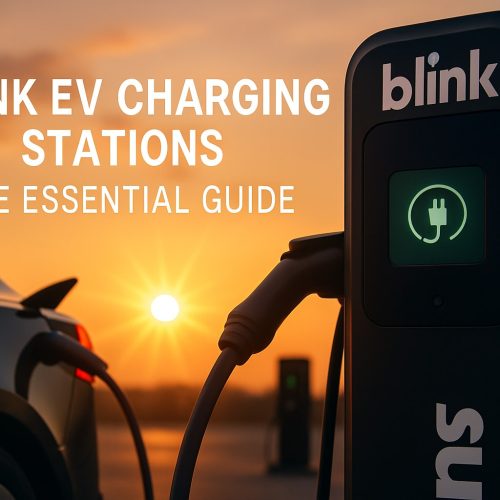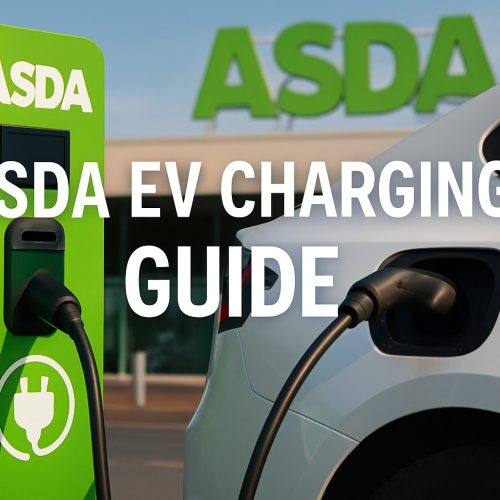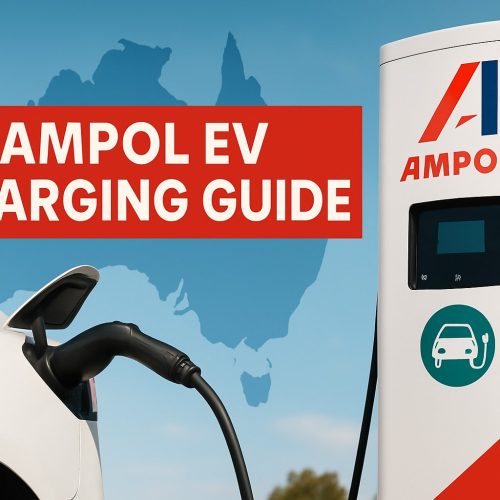Choosing the right electric vehicle charger is crucial for efficient and convenient charging. With the help of this comprehensive guide, you will learn how to make an informed decision when selecting an electric vehicle charger that best suits your needs.
Key Takeaways:
- Consider the speed at which you want to charge your vehicle. Level 2 chargers are faster than Level 1 chargers.
- Factor in the cost of the charger, including purchase and installation expenses.
- Ensure that your electrical setup can support the charger you choose.
- Choose between a hardwired or plug-in charger based on your preferences and requirements.
- Look for safety and protection features in the charger, such as UL certification.
- Take into account the location of the charger and cable length for convenience.
- Consider chargers with smart features like Wi-Fi connectivity and scheduling options.
- Evaluate the potential cost savings of charging at home versus using public charging stations.
Factors to Consider When Buying an EV Charger
Before making a purchase, it’s important to consider several factors to ensure you choose the most suitable electric vehicle charger for your needs. One crucial consideration is the speed at which you want to charge your vehicle. Level 1 chargers are slower than Level 2 chargers, which can charge up to eight times faster. If you’re looking for quicker charging times, a Level 2 charger would be a better choice.
The cost of the charger is another significant factor to take into account. Level 2 home charging stations typically cost around $2,000 for purchase and installation. It’s essential to establish a budget and determine how much you are willing to spend upfront for the charger.
It’s also important to ensure that your electrical setup can support the charger you choose. Before purchasing, consult with an electrician to assess your home’s electrical capacity and whether any upgrades or modifications are required. Additionally, you’ll need to decide whether you want a hardwired or plug-in charger. A hardwired charger offers a permanent installation, while a plug-in charger provides more flexibility and can be easily moved or replaced if necessary.
Safety and protection features should not be overlooked when selecting an electric vehicle charger. It is recommended to choose a charger that is UL-certified, as this ensures it meets the necessary safety standards. UL-certified chargers undergo rigorous testing to ensure they meet quality and safety requirements, providing peace of mind for the user.
Other factors to consider include the location of the charger and the length of the cable. Determine whether the charger will be installed indoors or outdoors and whether the cable length is sufficient for your needs. Additionally, some chargers offer smart features such as Wi-Fi connectivity and scheduling options, allowing you to monitor and control the charging process conveniently.
Finally, it’s worth considering the potential cost savings of charging at home versus using public charging stations. Charging your electric vehicle at home can be more cost-effective in the long run, as electricity rates are typically lower than public charging fees. However, if you frequently travel long distances or don’t have access to home charging, public charging stations may still be necessary.
By considering these factors and evaluating your specific requirements, you can make an informed decision when purchasing an electric vehicle charger that suits your needs and preferences.
Charger Speed and Charging Options
Understanding the charging speeds offered by different chargers is crucial when choosing an electric vehicle charger. The speed at which you want to charge your vehicle will determine which charger is best suited for your needs. Level 1 chargers are the most basic and typically come with your electric vehicle purchase. These chargers use a standard 120-volt outlet and provide a charging rate of around 4 to 5 miles of range per hour. While Level 1 chargers are convenient for overnight charging, they are relatively slow and may not be ideal for those who require frequent and faster charging.
On the other hand, Level 2 chargers offer a significantly faster charging rate. These chargers use a 240-volt outlet, which can charge your electric vehicle up to eight times faster than a Level 1 charger. With a Level 2 charger, you can expect a charging rate of around 25 to 30 miles of range per hour, allowing you to quickly top up your battery. However, it’s important to note that Level 2 chargers require professional installation and may involve additional costs, with Level 2 home charging stations typically costing around $2,000 for purchase and installation.
In addition to considering the charging speed, it’s essential to assess the cost savings of charging at home versus using public charging stations. Charging your electric vehicle at home is generally more cost-effective in the long run, as electricity rates are typically lower than public charging fees. By having a Level 2 charger installed at home, you can take advantage of the faster charging speed and enjoy the convenience of charging overnight or whenever it is convenient for you.
| Charger Type | Charging Speed | Cost |
|---|---|---|
| Level 1 Charger | 4-5 miles of range per hour | Included with electric vehicle purchase |
| Level 2 Charger | 25-30 miles of range per hour | Around $2,000 for purchase and installation |
By considering the charging speeds, cost savings, and convenience of charging at home, you can make an informed decision when choosing an electric vehicle charger that best suits your needs and lifestyle.
Cost of the Charger
The cost of an electric vehicle charger, including both the purchase and installation expenses, should be taken into consideration before making a decision. When it comes to Level 2 home charging stations, you can expect to pay around $2,000 for the overall cost. This price includes the charger itself and the professional installation required to ensure safe and efficient charging.
It’s important to note that the cost of the charger can vary depending on several factors. The brand, features, and charging capacity of the charger can all influence the price. Additionally, the complexity of the installation process, such as the distance from the electrical panel and the need for any upgrades, can impact the final cost.
When investing in an electric vehicle charger, it’s essential to assess your budget and determine the maximum amount you are willing to spend. Consider the long-term benefits and savings that come with owning a charger, such as the convenience of charging at home and potential cost savings compared to using public charging stations.
Table: Cost Comparison of Select Electric Vehicle Chargers
| Charger Brand | Price Range | Key Features |
|---|---|---|
| Brand A | $1,500-$2,000 | Level 2 charger, Wi-Fi connectivity, scheduling options |
| Brand B | $2,000-$2,500 | Level 2 charger, smart charging capabilities, energy monitoring |
| Brand C | $2,500-$3,000 | Level 2 charger, advanced safety features, mobile app integration |
Remember to factor in the overall cost, including installation, when comparing different electric vehicle chargers. Consider your specific needs and requirements, such as charging speed, connectivity options, and safety features, to make an informed decision that aligns with your budget and charging needs.
Electrical Compatibility and Setup
Assessing the compatibility of your electrical setup and choosing between a hardwired or plug-in charger are crucial steps in the selection process. When considering the electrical setup, it is important to ensure that your existing electrical system can support the charger you choose. This will prevent any potential issues or safety hazards down the line.
If you opt for a hardwired charger, it will need to be professionally installed by an electrician. This type of charger is directly connected to your electrical panel, providing a dedicated circuit for charging your electric vehicle. Hardwired chargers offer a neat and permanent solution, eliminating the need for any additional cables or plugs.
On the other hand, plug-in chargers are easier to install and can simply be plugged into a standard electrical outlet. This provides more flexibility in terms of installation location, as you can easily move the charger if needed. However, it’s important to note that plug-in chargers may have a lower charging rate compared to hardwired options, so it’s important to consider your charging needs and desired charging speed.
| Charging Method | Installation Process | Flexibility | Charging Speed |
|---|---|---|---|
| Hardwired Charger | Requires professional installation | Less flexibility, fixed location | Faster charging speed |
| Plug-in Charger | Simple plug-and-play installation | More flexibility, portable | Slower charging speed |
Considering your electrical compatibility and making a decision between a hardwired or plug-in charger will depend on your specific needs and circumstances. If you prioritize speed and convenience, a hardwired charger may be the best option. However, if flexibility and ease of installation are more important to you, a plug-in charger may be the preferred choice.
Key Considerations:
- Assess the electrical capacity of your home to ensure it can support the charger
- Determine whether a hardwired or plug-in charger aligns better with your needs
- Consider the available installation space and desired charging location
By carefully considering your electrical setup and charger type, you can ensure a smooth and efficient charging experience for your electric vehicle.
Safety and Protection Features
Prioritizing safety and protection is paramount when selecting an electric vehicle charger. The charging process involves high levels of electricity, so it’s crucial to choose a charger that is equipped with the necessary safety features to prevent any potential hazards.
One way to ensure safety is by selecting a charger that is UL-certified. Underwriters Laboratories (UL) is an independent safety certification organization that tests and evaluates electrical products for compliance with strict safety standards. UL-certified chargers have undergone rigorous testing to ensure their safety and reliability.
In addition to UL certification, there are other safety features to consider. Many chargers come with built-in protections against power surges, overheating, and overcurrent, which can help prevent damage to your vehicle and your charging equipment. Some chargers also have ground fault circuit interrupter (GFCI) protection, which provides an added layer of safety by shutting off the power if there is a fault in the electrical circuit.
| Safety Features | Description |
|---|---|
| UL Certification | Ensures that the charger has met rigorous safety standards. |
| Power Surge Protection | Prevents damage to your vehicle and charger in the event of a power surge. |
| Overheating Protection | Shuts off the charger if it detects excessive heat, preventing any potential fire hazards. |
| Overcurrent Protection | Helps prevent damage to the charger and your vehicle by shutting off the power in the event of excessive current flow. |
| GFCI Protection | Shuts off the power if a fault in the electrical circuit is detected, enhancing safety. |
By selecting a charger with these safety features, you can have peace of mind knowing that you are taking the necessary precautions to protect yourself, your vehicle, and your charging equipment.
Location and Cable Length
Determining the optimal location for your electric vehicle charger and considering the required cable length are important factors to bear in mind. The location of the charger can impact convenience, accessibility, and charging efficiency.
If you plan to charge your electric vehicle mainly at home, you have the option of installing the charger either indoors or outdoors. Indoor installation offers protection from the elements and may be more suitable if you have a garage or carport. On the other hand, outdoor installation provides flexibility and may be more convenient if you don’t have access to a dedicated indoor parking space.
The cable length is another crucial aspect to consider. You need to ensure that the cable can reach your vehicle’s charging port with ease, regardless of where the charger is positioned. It’s advisable to measure the distance between your desired charger location and your vehicle’s charging port to determine the appropriate cable length needed.
| Location | Pros | Cons |
|---|---|---|
| Indoors | Protection from weather conditions, convenient access | Requires dedicated indoor parking space |
| Outdoors | Flexibility, suitable for households without indoor parking space | Exposure to the elements, potential cable length limitations |
Smart Features and Connectivity
Some electric vehicle chargers come equipped with advanced smart features that enhance convenience and connectivity. These smart features can make charging your electric vehicle even more effortless and efficient. One such feature is Wi-Fi connectivity, which allows you to connect your charger to your home network. This enables you to monitor and control your charging sessions remotely through a mobile app or web portal. You can check the status of your charge, adjust settings, and even receive notifications when your vehicle is fully charged or if any issues arise.
Scheduling options are another smart feature that can be incredibly useful. With scheduling capabilities, you can set specific times for your charger to start and stop charging. This can be especially beneficial if you have lower electricity rates during off-peak hours. By programming your charger to charge during these times, you can take advantage of cost savings and optimize your charging routine. Additionally, scheduling options allow you to ensure that your vehicle is fully charged and ready to go at your desired time, without having to manually adjust the charger each time.
Table: Comparison of Electric Vehicle Charger Smart Features
| Smart Feature | Description |
|---|---|
| Wi-Fi Connectivity | Allows for remote monitoring and control of charging sessions. |
| Scheduling Options | Enables setting specific times for charging to optimize cost savings and convenience. |
| Energy Usage Tracking | Provides insights into energy consumption and charging habits. |
| Integration with Smart Home Systems | Allows integration with other smart home devices for seamless automation. |
It’s worth noting that not all electric vehicle chargers come with these smart features, so it’s important to consider your specific needs and preferences when choosing a charger. If you value the convenience and flexibility that these features offer, be sure to look for chargers that include them. However, keep in mind that chargers with smart features may come with a higher price tag compared to basic chargers. Therefore, it’s essential to evaluate the cost-benefit ratio and determine if the added functionality justifies the investment for your individual charging requirements.
Best EV Charger for Home Use
Choosing the right electric vehicle charger for home use is crucial for efficient and hassle-free charging. When considering the best EV charger for your home, there are several factors to take into account.
One important consideration is the speed at which you want to charge your vehicle. Level 1 chargers are slower than Level 2 chargers, which can charge up to eight times faster. If you have a long commute or frequently need to charge your EV quickly, a Level 2 charger would be the best option for you.
Another factor to consider is the cost of the charger. Level 2 home charging stations typically cost around $2,000 for purchase and installation. While this may seem like a significant investment, it’s important to remember that charging at home can result in long-term cost savings compared to using public charging stations.
When it comes to safety and protection, it is recommended to choose an EV charger that is UL-certified. UL certification ensures that the charger meets strict safety standards, giving you peace of mind while charging your vehicle.
| Factors to Consider | Best EV Charger for Home Use |
|---|---|
| Charging Speed | Level 2 Charger |
| Cost | Around $2,000 |
| Safety | UL-certified Charger |
Additionally, think about the location of the charger. Do you plan to install it indoors or outdoors? This will determine the type of charger you should choose, as some chargers are specifically designed for outdoor use. Consider the length of the cable as well, ensuring it will reach your vehicle comfortably without any inconvenience.
Lastly, some EV chargers come with smart features, such as Wi-Fi connectivity and scheduling options. These features allow you to monitor and control your charging sessions remotely, making it more convenient and efficient.
In summary, when choosing the best EV charger for home use, consider factors such as charging speed, cost, safety, location, cable length, and smart features. By taking all these factors into account, you can select the EV charger that suits your needs and ensures a seamless charging experience for your electric vehicle.
Top-Rated Electric Vehicle Chargers
Here is a curated list of top-rated electric vehicle chargers that have received positive reviews and have proven to be reliable options.
ChargePoint Home Flex Electric Vehicle (EV) Charger
Features Specifications Power: Level 2, up to 50 amps Dimensions: 11.8 x 7.1 x 7.2 inches Charging Speed: Up to 37 miles of range per hour Weight: 15 pounds Connectivity: Wi-Fi enabled Price: $699 (MSRP) The ChargePoint Home Flex EV Charger offers fast charging speeds and the convenience of Wi-Fi connectivity. It is compatible with all electric vehicles and can be installed either indoors or outdoors. This charger has been praised for its reliability and user-friendly interface.
JuiceBox Pro 40 Smart Electric Vehicle Charger
Features Specifications Power: Level 2, up to 40 amps Dimensions: 10 x 6 x 3 inches Charging Speed: Up to 26 miles of range per hour Weight: 21 pounds Connectivity: Wi-Fi enabled Price: $599 (MSRP) The JuiceBox Pro 40 is a smart EV charger that offers advanced features like real-time monitoring and smart grid optimization. It is compact, portable, and can be easily installed in residential garages. Users have praised its durability and fast-charging capabilities.
Bosch Level 2 EV Charger
Features Specifications Power: Level 2, up to 30 amps Dimensions: 16.5 x 10.6 x 6.4 inches Charging Speed: Up to 25 miles of range per hour Weight: 13.9 pounds Connectivity: N/A Price: $449 (MSRP) The Bosch Level 2 EV Charger provides a reliable and cost-effective charging solution for electric vehicle owners. It is easy to install and offers a durable construction. While it may lack advanced connectivity features, this charger has received positive feedback for its affordability and performance.
These are just a few examples of the top-rated electric vehicle chargers available in the market. Remember to consider your specific needs and requirements when choosing the right charger for your electric vehicle. Always consult with a professional electrician for installation and ensure you follow safety guidelines to enjoy a smooth and efficient charging experience.
Conclusion
With the information provided in this guide, you are now equipped to make an informed decision when purchasing an electric vehicle charger for your electric vehicle. When choosing an electric vehicle charger, there are several factors to consider.
One important consideration is the speed at which you want to charge your vehicle. Level 1 chargers are slower than Level 2 chargers, which can charge up to eight times faster. This means that with a Level 2 charger, you can spend less time waiting for your vehicle to charge and more time on the road.
The cost of the charger is also a significant factor. Level 2 home charging stations typically cost around $2,000 for purchase and installation. While this may seem like a significant investment, it’s important to consider the potential cost savings of charging at home versus using public charging stations in the long run.
It’s also important to ensure that your electrical setup can support the charger you choose. Whether you opt for a hardwired or plug-in charger, compatibility with your electrical system is crucial for safe and efficient charging. Safety and protection features are equally important, with UL-certified chargers being recommended to ensure peace of mind.
Consider the location of the charger, whether it will be installed indoors or outdoors, as well as the length of the cable. These factors will determine the convenience and accessibility of your charging setup. Additionally, some chargers offer smart features such as Wi-Fi connectivity and scheduling options, which can further enhance your charging experience.
By taking into account these factors and utilizing the information provided in this guide, you can confidently select the best electric vehicle charger for your needs. Remember, choosing the right charger will not only provide convenience but also contribute to a more sustainable and eco-friendly future.
FAQ
What factors should I consider when buying an EV charger?
When buying an EV charger, you should consider factors such as the speed at which you want to charge your vehicle, the cost of the charger, electrical compatibility and setup, safety and protection features, location and cable length, and smart features and connectivity.
What are the different charging options available?
There are Level 1 chargers, which are slower, and Level 2 chargers, which can charge up to eight times faster. It’s important to consider the charging speed you require for your vehicle.
How much does an EV charger typically cost?
Level 2 home charging stations typically cost around $2,000 for purchase and installation. The cost may vary depending on the brand and features of the charger.
How do I ensure that my electrical setup can support the charger I choose?
Before purchasing an EV charger, it’s important to verify that your electrical setup can support the charger’s power requirements. You may need to consult with an electrician to determine if any upgrades or modifications are necessary.
What safety features should I look for in an EV charger?
It is recommended to choose an EV charger that is UL-certified, as this ensures that it meets safety standards and has undergone testing for durability and reliability.
Does the location of the charger matter?
Yes, the location of the charger is an important factor to consider. You need to decide whether you want to install the charger indoors or outdoors, as this can affect the installation process and cable length required.
What are smart features in EV chargers?
Some EV chargers offer smart features such as Wi-Fi connectivity and scheduling options. These features allow you to monitor and control the charging process remotely and set charging schedules according to your preferences.
Is it more cost-effective to charge at home or use public charging stations?
Charging your electric vehicle at home can often be more cost-effective compared to using public charging stations. By taking advantage of off-peak electricity rates and potential cost savings, you can save money in the long run.
What is the best EV charger for home use?
The best EV charger for home use may vary depending on your specific needs and preferences. It’s recommended to consider factors such as charging speed, safety features, and compatibility with your vehicle before making a decision.
Can you recommend any top-rated electric vehicle chargers?
There are several top-rated electric vehicle chargers available in the market, including brands like Tesla, ClipperCreek, and JuiceBox. It’s advisable to research and compare different options to find the one that best suits your requirements.
